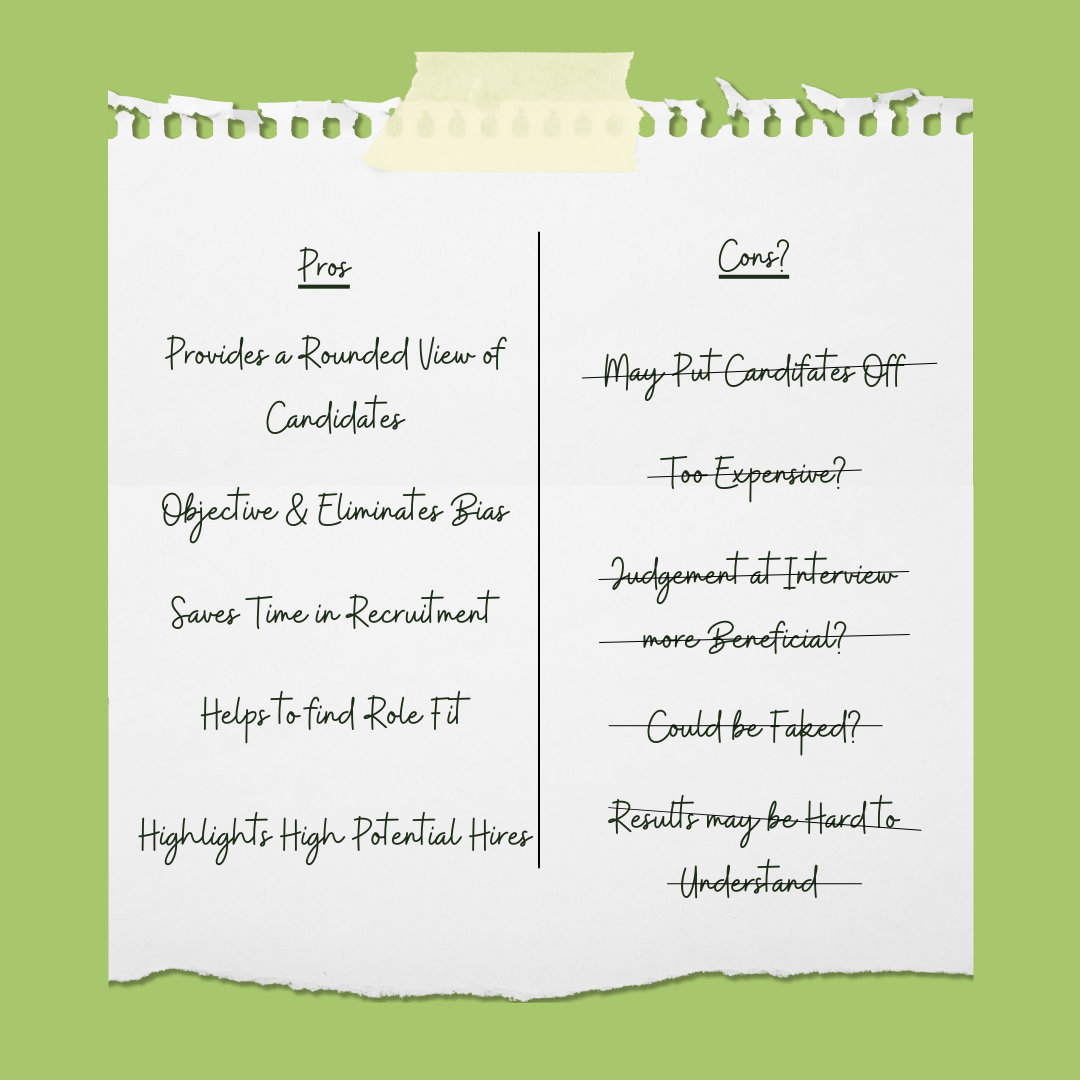Annie is the owner of The Purple Duck, a homeware shop with a small cafe in Sussex. Annie has around 10 staff and due to recent successes, is planning to add five further employees to her team. She has been considering the pros and cons of using psychometric assessments within her recruitment and development strategy but has reached a crossroads as to whether assessments are suitable for her business. She has written the following list of pros and cons.

While the pros are clear, let’s talk about these cons.
“They’re too expensive and therefore only for larger corporate businesses”
It is often assumed that psychometric assessments are out of reach or irrelevant for smaller companies. However, the smaller the company, it could be argued, the more crucial it is to get the right hire. Not only does each person make a huge difference to the make-up of a small team, research has found that the price of a mis-hire is around 30% of an individual’s annual earnings. With Profile:Match2 reports priced from £15, why not get it right first time?
“It may put our candidates off applying to the role”
Research has shown that candidates value fair treatment in all aspects of the workplace and that their perception of fairness will influence their employee citizenship. Adding a level of fairness with psychometric tests should gain respect from candidates and an appreciation that they will be judged not just on first impression but on multiple aspects that affect how well a person may perform in their role. This perception of organisational justice may then have a ripple effect on their work when in role. Profile:Match2 includes a Job Analysis survey to analyse critical competencies, ensuring the test measures integral performance based skills, adding a layer of fairness and integrity. Psychometric assessments are also less time consuming than assumed, with Profile:Match2 assessments taking around twenty minutes to complete.
“Our personal judgement and impression at interview may be better”
Interviews have long been the go-to way to get to know your potential hires. But traditional interviews can be rife with bias. Why not use psychometrics to guide those interviews, and mitigate this bias? Using personality assessments prior to interviews allows you to ditch the ‘where do you see yourself in 10 years’ and use what you already know about a person from the assessment. You can highlight strengths shown within their personality profile to guide your questioning and collate a much richer account of the candidate being assessed. The Profile:Match2 Interview Guide allows a fair comparison of candidates, measuring each individual against the exact same yardstick.
“The candidates may be able to cheat the test and fake the results”
Based on rigorous research, psychometric assessments are adequately adjusted for any attempts at impression management. Tests ensure questions are asked in multitude of ways and are able to spot ‘fakers’. In addition to this, there are truly no right or wrong answers in personality assessments and therefore an attempt to do so may only serve to create a wrong impression rather than a better one. We always recommend using feedback and diving into the results with the candidate to get to grips with what has come out in their profile.
“Results may be difficult to interpret or require a trained psychologist”
Though for some psychometrics this is the case, there are more accessible psychometric tools that break down results in easy to interpret reports for both the candidate and assessor. Profile:Match2 reports provide the option to either quickly sort through applicants with simplified summaries, guide interviews with specific relevant questions, or view ratings of key competencies assessed for the role and areas to explore further. These reports, using competency language, provide a wealth of knowledge about your candidates even before meeting them and can be invaluable in finding the right fit.
If you’re considering the use of psychometrics within your business, get in touch to learn how Profile:Match2 can support your needs.